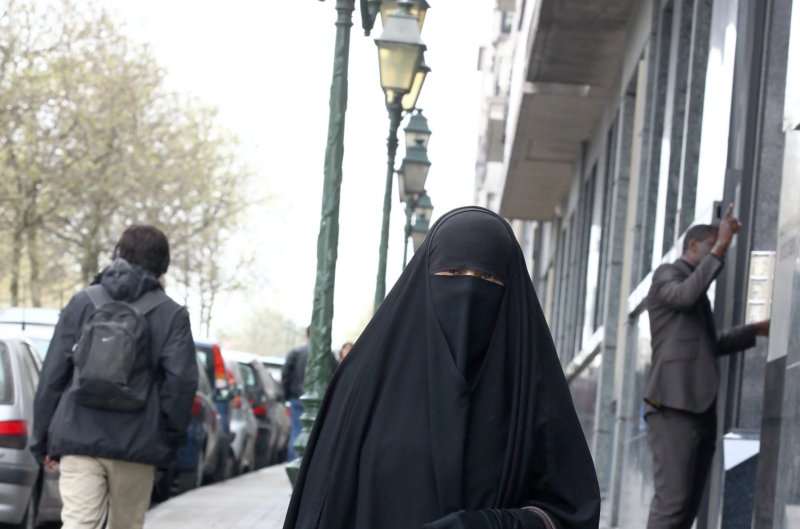A Muslim woman dressed in a niqab walks the street in Brussels, Belgium. Photo by Julien Warnand/EPA-EFE
Oct. 23 (UPI) -- An international human rights group ruled Tuesday that a ban by the French government on full-body Islamic veils, called niqabs, violated the rights of two Muslim women.
The women, who were prosecuted and convicted in 2012 for wearing the niqab, took their case to the U.N. Human Rights Committee (OHCHR) in 2016. France banned the niqab in 2010 to keep women from wearing in public "any article of clothing intended to conceal the face." France argued the law was necessary for security purposes.
The niqab is a full-body veil that covers the entire body, leaving only slits for the eyes.
The United Nations Human Rights Committee, though, said in rulings in both cases Tuesday the government had not shown that the ban is necessary on security grounds. It said the French law "disproportionately harmed the petitioners' right to manifest their religious beliefs."
Having a ban on the niqab could confine women to their homes because it's against their religious beliefs to leave home without the veil, the panel noted.
"The decisions are not directed against the notion of secularity, nor are they an endorsement of a custom which many on the committee, including myself, regard as a form of oppression of women," said OHCHR chair Yuval Shany.
France has 180 days to report back to the panel on what actions it's taken, and will be required to compensate the women and take steps to prevent further violations.
Other countries have partially banned burqas or niqabs in public, including the Netherlands, Denmark, Germany, Morocco and Austria.
In 2016, France banned women from wearing so-called burkinis, modest swimwear, on French beaches.















